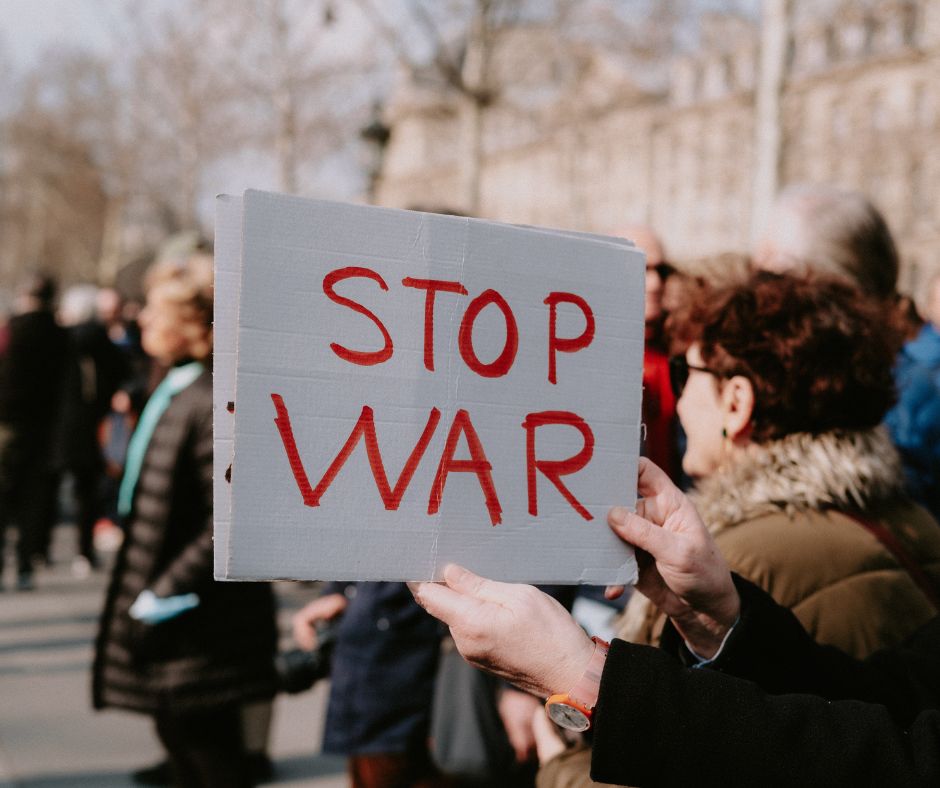Summary:
-
As the Russian invasion makes Ukrainians less safe all over the country, women and girls are in double danger. “
-
Women and girls are now even less safe from violence based on their gender.”
-
For example, they have been working with partners to make sure that survivors of sexual violence related to a conflict get protection and help from law enforcement and service providers.
-
In April, they started a legal help hotline.
-
But “JurFem lawyers can break existing stereotypes and make sure victims have access to justice” by talking with law enforcement and the courts.
As the Russian invasion makes Ukrainians less safe all over the country, women and girls are in double danger. “There’s no doubt that Russia’s war against Ukraine has made no one feel safe,” says Ms. Kit. “Women and girls are now even less safe from violence based on their gender.” Journalists, human rights groups, and law enforcement agencies have written about rape (usually gang rape), sexual torture, forced nudity, and other forms of abuse.
Ms. Kit says that we don’t know how bad this violence is, but its effects will last: “We will have to deal with the effects of sexual violence related to conflict for many years to come.”
At the same time, women still have to deal with the violence that is a normal part of their society. “Domestic or sexual violence against women hasn’t gone away, especially in public places,” she says. “People who were mean and violent in the family still do mean and violent things.”
Ms. Kit points out that the ongoing conflict has made it harder to make progress: “It’s hard to make progress in the fight against violence against women when you live in a state of war and have to fight every day for your life and the lives of your children.”
Filling in the blanks
When Ms. Kit started practicing law in 2007, she saw that there was a significant need for more legal help for people who had been victims of domestic violence. “Not many lawyers were willing to take on these kinds of cases because the crimes were often already done,” she says. Most of the time, domestic violence is seen as a private matter, and the legal system tends to put the burden of dealing with these cases on the victims themselves.
Ms. Kit decided to make a change. “I want myself and other women and girls in Ukraine to feel safe and to know that if their rights are violated, they will get effective protection without prejudice, discrimination, or stigma,” she says.
With the start of JurFem in 2017, she took a big step toward this goal. Recent work for the organization has been shaped by how the crisis is developing. For example, they have been working with partners to make sure that survivors of sexual violence related to a conflict get protection and help from law enforcement and service providers. They have also been giving survivors legal help directly. In April, they started a legal help hotline.
“Only through experience and practice can we change the way we look into cases of sexual violence,” says Ms. Kit. Even if a survivor has the best legal protections, police or judges won’t believe them. But “JurFem lawyers can break existing stereotypes and make sure victims have access to justice” by talking with law enforcement and the courts.
Even though Ms. Kit’s advocacy work is based on her legal training and decades of experience, she stresses that you don’t need special skills or knowledge to get involved in a cause: “Every one of us should work to change something for the better.”
She says that activism does need a sense of community and care: “Join together and get the help of people and groups with similar goals,” she says. “Look out for your safety and mental health, and do what you think is right. You need to take care of yourself so that you can take care of others.”

Not again
Ms. Kit says, “It’s hard to imagine a world without violence based on gender right now.” “After all, if we couldn’t stop this war, how could we stop violence against women?”
She thinks we can make it less common by making better ways to deal with it and bringing the people who do it to justice. She also feels that women and girls in Ukraine will have a better future. “Justice must be restored,” she says, “so that this never happens again.”

